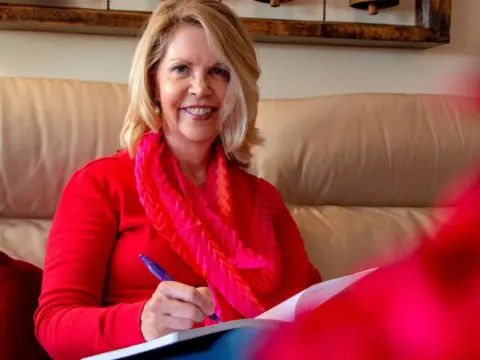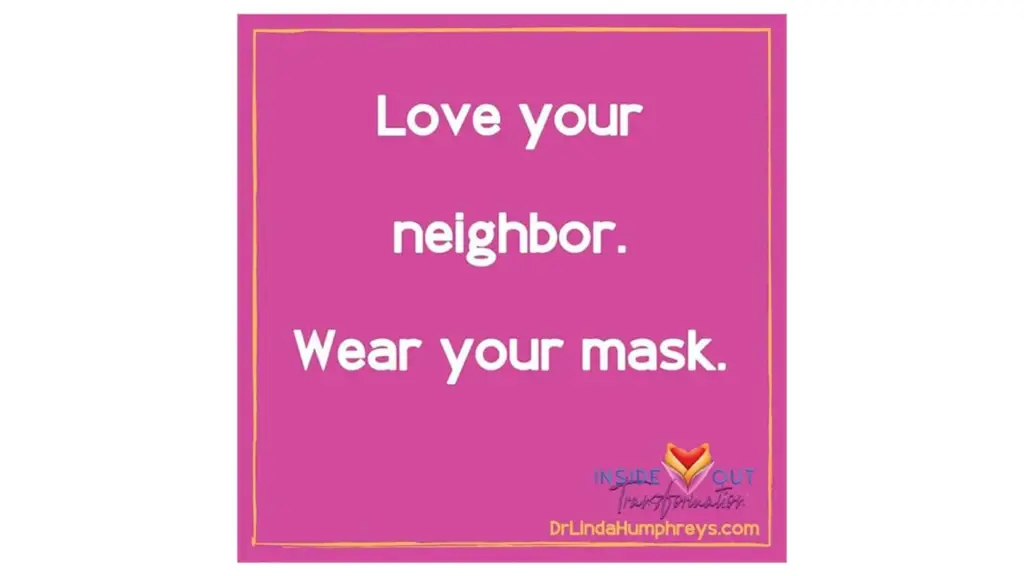It is inevitable.
In this highly polarized time, you are bound to encounter those with mild-to-intense—and even what you may judge as “extreme”—opinions, beliefs, and perspectives that are the opposite of what you believe, prescribe to, and perceive. Everywhere you go (the office, gym, coffee shop) and everyone whom you encounter (colleagues, friends, family members) may trigger a feeling within of tip-toeing through a minefield—both within and throughout—trying to avoid emotional explosions within yourself and being the recipient of others’ emotional outbursts.
You may feel this way everyday—and particularly during any family gathering and holiday. The mere thought of encountering some of these individuals may even create feelings of nervousness, anxiety and exasperation.
How can you communicate with individuals—that are polar opposite to you—yet experience some semblance of inner peace and wholeness? Before I get to that, I want to share a personal story with you about one of my polar opposites.
My older brother
Remember the Y2K scare?
For those not familiar with that event, January 1st, 2000 was supposed to be the day when life, as we knew it, was to crash and burn because computer programs / algorithms were not set-up for dates after December 31st, 1999. Catastrophic theorists warned that what was supposed to work (such as traffic lights, bank systems, and most databases), were going to stop working. This, we were warned, would result in turning our lives upside-down due to our insufficiently date-programmed and computer controlled and operated infrastructure was coming to an instant and cataclysmic halt.
My older brother, Rob, whom I love dearly, bought into the gloom and doom hype. He took-on a “survivalist” mentality, expecting and preparing for the worst. The Christmas before the calamitous event was to take place, he gave me some kind of a flashlight with a generator that was not dependent plugged-in electricity to recharge and some kind of radio that also had an alternative energy source. (After all, the entire infrastructure of our country was to be affected—including all power and water plants.)
As you most likely know, Y2K came and went with just a few (relatively slight) hiccups.
I never rubbed Rob’s face with “I told you so”—though I threatened I would do so if nothing happened. I never mentioned Y2K ever again. He never mentioned it either.
We moved on.
What I learned about how to deal with polar opposite people and personalities
Upon reflection, this is what I learned from that experience with my brother—and with dealing with others (admittedly—not very well at times) who exhibited, what I formerly judged as “wrong” or “bad” opinions, beliefs, and so on:
I realized this about the other person:
- I can never change another person’s mind.
- They may or may not ever change their mind.
- If they ever do change, it will be initiated from the other person—in their own time, pace, and place—if at all.
What I realized about both others and myself:
- yelling
- name calling
- swearing
- exhibiting a condescending attitude
- having contempt for
- viewing as if “less-than”
- treating me like I am stupid / treating others like they are stupid…will never change anyone’s mind.
These types of behaviors and energetics only shuts people down.
- It closes minds and hearts.
- It only serves to entrench people within their thinking mind, ego, and personality traits of stubbornness and defensiveness.
- It causes even greater separation and polarization.
So…now what?!!?
You may find yourself in the same predicament with one or more of your family members, co-workers, friends and/or acquaintances. Instead of dreading encounters with “these people”—during any holiday, family gatherings, work encounter, and so on—take some time to examine where YOU are coming from.
Your head (thoughts) or your heart?
When you are in a quiet space and have some time to take an inner exploration, ask yourself some of the following questions: (You can journal your responses if you like.)
- When I think of (name of the person / group of people), I think…
- When I think of “that person” or “those people”, I feel…
Now, observe your body:
- Are you tense? If yes, where?
- Neck?
- Shoulders?
- Jaw and teeth? Clenched?
- Examine your breathing –
- Shallow?
- Upper chest breathing?
- Fast?
- Observe hands
- Clenched fist?
- Sweaty palms?
- Heart beats
- Slow?
- Fast?
- Blood pressure
- Calm?
- Raised?
Important: All of these responses are reactions that your thoughts have created. Your thinking mind—coupled with the thinking mind’s / ego’s judgements—just created a “whipped-up” state within you. You created this state! “That person” and “those people” had nothing to do with your present state and condition.
Exploring a new way of being—
within yourself and within your relationships with others
These are some steps that you can take if you are willing to take new steps towards improving both your inner and outer experience of your relationships with others:
- Willingness—I always say that the way to create the space for lasting change is to “begin from within.” That first step is willingness—willingness on your part—to make a change in how you approach others, the situation, and yourself. Begin with respect and kindness—both for yourself and the other person / people.
- Create and state affirmations—Every time the person and/or the Holidays comes to mind, take a moment to connect with your heart and state affirmations:
- I am looking forward to seeing and talking with ________.
- I am enjoying my connection and conversation with _________.
- Intention—Set an intention to communicate—both speaking and listening—from your heart. Give your ego / thinking mind—what I often call my “monkey mind”—a rest. Allow yourself to listen with your heart—and listen to the other person’s heart.
- Empathize with compassion—Be willing to allow your heart to see and hear the other person’s anger—which is a by-product of their hurt and their pain. Be with the other person in their suffering—the definition of compassion.
- Be the gift and share the gift—I have witnessed and experienced the transformational power of this: one of the greatest gifts you can give another person is being listening to and being heard—deeply—with your heart.
- Set boundaries—Just because you are coming from a heart-centered place, it does not mean that you have to or should tolerate abusiveness in any form. Lovingly explore when and how to remain engaged with the other person while still being supportive to your own mental, emotional, and physical self—and when to simply and respectfully disengage from the other person.
- Respectand yes, love—Know that just because you are willing to listen and empathize with another does not mean that you are not “true” to yourself. It also does not mean that you will be chewed-up, swallowed, and spit-out by another.
- Respect and love yourself for your willingness to approach communicating in a new and more heart-centered way. Stand in your self-respect and self-love, as those things will be your “inner fuel” to stand firm during your encounters.
- Respect and love the other person by being willing to show-up in this new heart-led way.
- Let go!—Be willing to let go of your:
- Past experiences of “negative” encounters with this individual
- “Position” of “I am right” and “You are wrong.”
- Anger towards the other person and/or “those people”
- Negative thinking about the individual and/or “them”
- Labels you have imposed upon others – including “toxic”
- Any and all judgements:
- Of the other person
- Of yourself—that you will appear “weak” or “wimpy” if you listen from your heart
- Practice! Practice! Practice!
- Breathing
- Visualizing
- looking forward to talking with this individual
- relaxing your jaw, shoulders, neck and hands when in their presence
- deeply breathing
- connecting with your heart while listening to the other person
- Hint: Touch your heart with your hand—to remind yourself that this is where you want to be centered and both speaking and listening from.)
- staying heart centered (regardless of where the other person is coming from and how they communicate)—towards the other person and yourself
- comfortable and supportive “exit strategies”
- Do not take things personally
- Though you may be coming from a heart-centered place, the other person may be in attack-mode.
- Remembering that you cannot and will never change another person, let them be.
- Set boundaries—Just because you are coming from a heart-centered place, it does not mean that you have to or should tolerate abusiveness in any form.
- Lovingly explore when and how to remain engaged with the other person while still being supportive to your own mental, emotional, and physical self—and
- when to simply and respectfully disengage from the other person.
- Respect your boundaries—while engaging with the other person—and exit accordingly.
I messed up! Now what?
Try as we might, there are sometimes when we will slip and fall back into old patterns of self-righteousness, judgement, and anger. When and if this happens, practice the following:
- Self-forgiveness
- Acknowledge that you tried
- Be willing to try again another time
As with any and all things, always—
- Be kind, gentle, and loving towards yourself during—everything!
- Bring loving kindness to yourself. Every time you think about the situation,
- touch your heart
- breathe, and
- feel gratitude for your beautiful loving heart
- Bring loving kindness towards the other person. Every time you think about the other person
- touch your heart
- breathe, and
- feel gratitude for the lessons of loving kindness this other person is assisting you in learning
- Bring loving kindness to the situation. Every time you think about another future encounter
- touch your heart
- breathe
- feel gratitude for the lessons of loving kindness this other person is assisting you in learning
- Keep practicing: set intentions, visualize, sending loving kindness to all involved
- Try again
- Breathe
Also, with everything—and at all times—don’t forget this: ask God / Spirit / Your Highest Power for assistance, guidance, and clarity.
A little more about my older brother…
I cannot conclude this article without adding a little more about my older brother, Rob.
While fantasizing about having an “I told you so “moment and “rubbing” Rob’s deeply held beliefs “in his face”– it felt, in that moment, really good—even “empowering.” That negative fantasy of me “having my moment”—saying those words and imaging feelings that might accompany me saying them, was empowering—to my thinking / ego. In actuality, it only would have led to greater separation and polarization between my me and my brother.
Shaming causes separation—
which leads to breaking—
of hearts and relationships with others.
Shaming = Separation ~ and ~ Compassion = Connection
Rob and I were polar opposites on just about everything—including politics. Though we would talk and discuss our varying opinions of what was “right” and what was “wrong”—there was still a deep and abiding love for each other. I know this because in spite of our arguments, we both had the opportunity to share—from a very deep, raw and real place—our love for each other prior to his passing over a decade ago.
I am glad never said “I told you so” to Rob. I did not want to “shame” him. I knew that he, in his own unique way, was expressing his love and concern for me—the best way he could in the only way he knew how to do at that time.
Bottom line:
I believe this to be the truth about Rob and about me: we both did the best we could at that time. Behind all of everything—there was love.
Rob bought me what I called a “crazy” flashlight and “weird” radio out of his love for me and his concern for my health, safety and welfare. To this day, those gifts remain two of my most favorite and cherished Christmas gifts—ever.
Thank you, Rob.
With much love—now and always—from your little sister.




